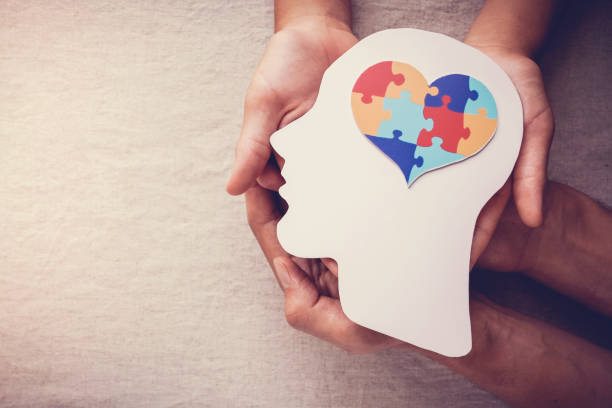Embark on an uplifting journey towards empathy and insight, a topic close to our hearts yet often shrouded in silence—Mental Health First Aid. In the tapestry of wellness, mental health stands as a critical thread holding together the fabric of our society. This narrative aims to arm you with gentle, yet profound tools, creating a lifeline in the turbulent seas of psychological distress. Beyond altruism, this is about weaving a community blanket of compassion and mindfulness where mental support is as instinctive as aid for a scraped knee.
The Art of Recognizing a Mental Health Emergency
Contents
- 1 The Art of Recognizing a Mental Health Emergency
- 2 The Power of Active Listening in Mental Health Crises
- 3 Weaving Threads of Solace: A Guide to Offering Calm and Assurance
- 4 Harmonizing Assistance with Personal Autonomy
- 5 Guiding Souls to Professional Support
- 6 Upholding Personal Harmony While Offering Comfort
- 7 Gentle Parting Wisdom

Learning to spot a mental health crisis is akin to reading a language without words. The indicators can be as varied as the human spirit—from a sudden retreat into solitude, noticeable shifts in daily routines, to grappling with overwhelming despair or anxiety. The key is not diagnosis but rather detection—becoming aware of when someone might be at their most vulnerable and in need of a kindred spirit. Think of it as a vital skill, like noticing a person struggling to breathe, and stepping in to offer respite.
Early intervention is the beacon of hope here. Much like you wouldn’t ignore a smoldering fire, early signs of mental strain should not be left unchecked until they grow beyond control. Taking note early on is not a task for the select few, but a collective responsibility, underscoring the importance of preparedness and education. To be skilled in this area is to see beyond the façade of ‘everything’s fine,’ to recognize the silent struggles and be ready to extend a hand when it’s needed most.
The Power of Active Listening in Mental Health Crises

Imagine standing in the eye of a storm, yet finding a person with an outstretched hand, ready to listen—that’s what active listening embodies in mental health first aid. This approach goes beyond traditional listening. It’s an engaged, focused, and deliberate practice where complete immersion in the other person’s situation is vital. Mental health active listening eschews judgment, invites openness, and fosters verbal and non-verbal empathy, letting those in turmoil feel truly seen and heard.
In these delicate conversations, silence is a companion, not an adversary. It offers a stage for the unheard to voice their innermost thoughts and feelings. Unbiased support is akin to a sanctuary amid chaos; it’s about showing respect and valuing someone’s experiences with grace and deference. At times, the pathway to healing begins simply with the assurance that one is being heard with genuine empathy and care.
Weaving Threads of Solace: A Guide to Offering Calm and Assurance

In the eye of life’s storms, when mental health challenges rage, proffering solace becomes an act of profound kindness. It’s a matter that touches the soul, transcending mere physical proximity—a commitment born from the heart, made tangible through your total presence, a look of warmth, and the steady tenor of your being. The correct manner of presence radiates like a soothing melody to a distressed mind.
Each word, each pause, every shared glance—these are the notes that compose the opus of mental wellness. True communication in the context of mental health is about understanding, delivered within an aura of tranquility, eschewing force or haste. More often than not, it’s the silent overtures of empathy that illuminate a path forward for those seeking a glimmer of hope.
Harmonizing Assistance with Personal Autonomy

The art of aiding without overreaching defines the sacred balance needed when one is experiencing mental distress. This fine line demands recognition—not envisaging ourselves as rescuers from despair but as companions, respectful of the journey and its pace. Providing mental health support is to honor the person’s autonomy, often allowing presence alone to be the most profound form of comfort we can provide.
Those standing in the aid of others must carry the insightful understanding of their own bounds. Realizing the extent of one’s ability to be of help and acknowledging the limits therein reveals fortitude, not frailty. It’s an act of bravery cloaked in humility, creating room for the struggling soul to lead their way towards healing.
Guiding Souls to Professional Support

Confronted with the complexities of mental wellness, it’s paramount to point the way toward expert counsel. These havens of mental health support serve as invaluable waypoints for souls adrift in their psychological tribulations. To gently usher an individual toward such resources is an art—a practice that must uplift and endorse their autonomy.
Upholding Personal Harmony While Offering Comfort

As we throw a lifeline to those weathering emotional tempests, it’s crucial to keep our own spirits buoyant. Attending to one’s peace of mind forms the bedrock of our capacity to dispense and accept kindness. We must participate mindfully in our own restorative rituals to secure the balance necessary to support others and ourselves without faltering.
Gentle Parting Wisdom

As this exchange draws to a considerate end, let it echo the valor found in each supportive touch we extend in mental health. Let the knowledge imparted here act as beacons on your voyage toward amplified sensitivity and unwavering company for those seeking solace. Your endeavors illuminate the collective hope for heartfelt warmth, each action a determined advance through the haze of emotional strife.
If these words spark a yearning to deepen your understanding of mental health advocacy, I entreat you to investigate structured learning like Mental Health First Aid or other qualifications that echo your altruistic drive. Accept this beckoning to a path of continuous enlightenment and assistance—a mission to enhance not merely the physical but the profound depths of emotional resilience in your community and beyond.

